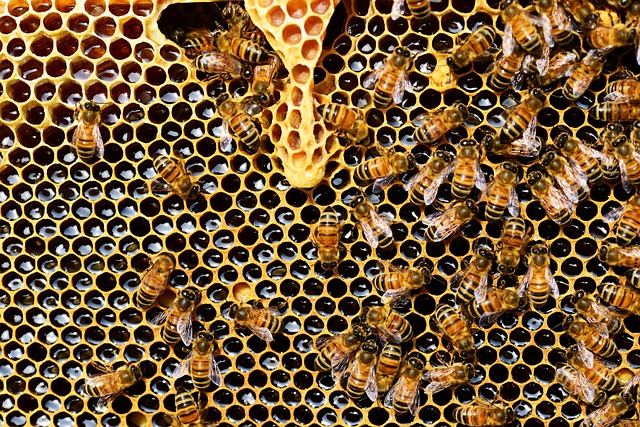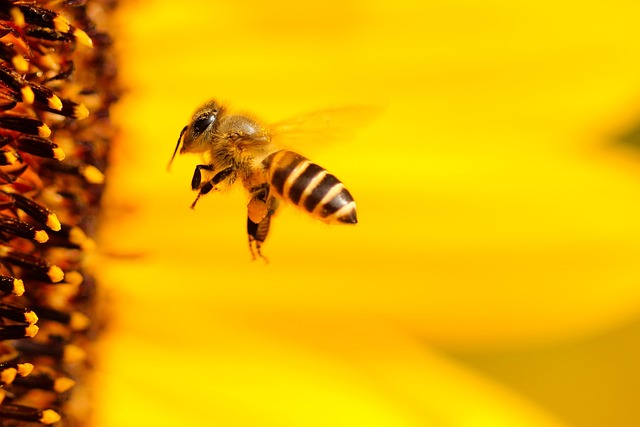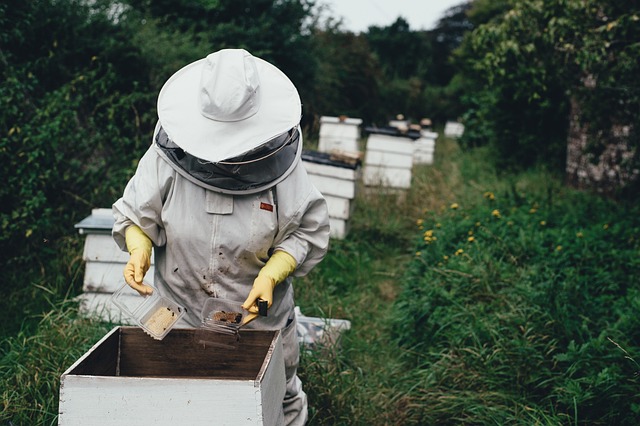Bees are often considered one of the unsung heroes of the natural world. These small, industrious insects play a vital role in pollinating many of the plants that make up our food supply. While bees might seem inconspicuous in our daily lives, their contributions are far-reaching and crucial for both the environment and the global food industry. In this article, we will explore the pivotal role that bees play in safeguarding our food supply and why it’s essential to protect these tiny but mighty pollinators.

The Pollination Process
To understand the importance of bees in our food supply, it’s essential to comprehend the pollination process. Pollination is the transfer of pollen from the male part of a flower (anther) to the female part (stigma) of the same or another flower. This process is essential for the reproduction of many plant species, including the crops we rely on for food. Bees, along with other pollinators like butterflies, birds, and bats, facilitate this process as they move from flower to flower in search of nectar and pollen.
Variety in Our Diet
The significance of bees becomes evident when we consider the variety of foods we enjoy in our daily diet. Fruits, vegetables, and nuts, all of which are staples of a balanced diet, depend on pollinators for their growth and production. Apples, strawberries, almonds, and even the coffee beans that fuel our mornings are products of pollination. Without the help of bees, the availability and affordability of these foods would be severely compromised.
Economic Impact
The economic impact of bees on the food industry cannot be overstated. In the United States alone, honeybee pollination is responsible for contributing approximately $15 billion in added crop value each year. Many commercial crops, such as almonds, blueberries, and avocados, rely heavily on honeybee pollination. The global value of pollinators, including bees, is estimated to be in the hundreds of billions of dollars.

Global Food Security
The importance of bees extends beyond individual economies; it has implications for global food security as well. As the world’s population continues to grow, so does the demand for food. The ability to meet this demand hinges on our ability to sustain crop production. Without adequate pollination, crop yields would decrease, leading to potential food shortages and increased food prices.
Challenges Faced by Bees
While bees are essential to our food supply, they face numerous challenges that threaten their populations. Pesticides, habitat loss, climate change, and disease all contribute to declining bee populations. Colony Collapse Disorder (CCD), a phenomenon in which worker bees inexplicably abandon their hives, has had devastating effects on bee colonies.
Protecting Our Pollinators
Given the critical role bees play in our food supply, we must take action to protect and support them. Here are a few ways we can contribute to their well-being:
- Reduce Pesticide Use: Adopt organic and sustainable farming practices that minimize pesticide use, or use pesticides only when necessary and in ways that minimize harm to pollinators.
- Plant Bee-Friendly Gardens: Create bee-friendly gardens by planting a variety of flowers, shrubs, and trees that provide nectar and pollen for bees. Native plants are particularly beneficial.
- Support Local Beekeepers: Buy local honey and support beekeepers in your area. Beekeeping is not only a source of honey but also crucial for pollinator preservation.
- Raise Awareness: Educate yourself and others about the importance of bees in our food supply and the challenges they face. Advocate for policies that protect pollinators.
- Reduce Climate Change Impact: Address the broader issues of climate change, which can affect the availability and timing of flowers and disrupt bee habitats.
In conclusion, bees are indeed the guardians of our food supply. Their role in pollination ensures the diversity and abundance of the foods we love, and their economic and global significance cannot be overstated. By understanding the importance of bees and taking steps to protect them, we can secure not only our food supply but also the health of our planet and future generations.
